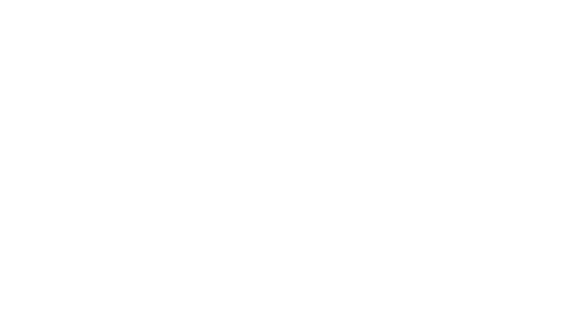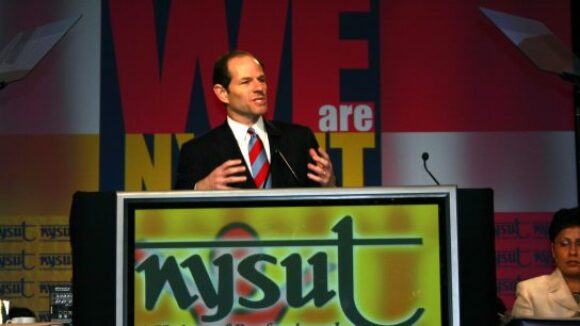Union Bosses Demand "More"
Writing in the Las Vegas Review Journal, Glenn Cook outlines how union endorsements of political candidates mean the candidate has abandoned the taxpayers in exchange for the campaign contributions and Big Labor union…

Writing in the Las Vegas Review Journal, Glenn Cook outlines how union endorsements of political candidates mean the candidate has abandoned the taxpayers in exchange for the campaign contributions and Big Labor union…

The power of the union bosses in California was on full display for the world to see when the legislature killed a bill that would have made it easier to investigate and fire teachers accused of serious misconduct. “Legislation to…

The embattled government workers’ union, AFSCME, elected its Secretary-Treasurer, Lee Saunders, as its next union boss after a bitter election that focused in part on whether the union should play aggressively in…
Forbes Magazine examines the impact of the National Right to Work Foundation’s latest Supreme Court’s victory in Knox vs. SEIU: The Supreme Court today rejected, on First Amendment grounds, the idea that government-employee unions can charge non-members…
You know the union bosses' spending and benefits orgy is coming to an end when liberals like Fareed Zakaria of Time Magazine recognize the dangers unfunded pensions that union activists and pro-big labor politicians have created: "A day after Governor Scott Walker won his recall election, the New York Times wrote, "The biggest political lesson from Wisconsin may be that the overwhelming dominance of money on the Republican side will continue to haunt Democrats." Democrats have drawn much the same conclusion. "You've got a handful of self-interested billionaires who are trying to leverage their money across the country," said David Axelrod, Barack Obama's senior campaign strategist. "Does that concern me? Of course that concerns me." Warren Buffett calls the costs of public-sector retirees a "time bomb." They are the single biggest threat to the U.S.'s fiscal health. If the U.S. is going to face a Greek-style crisis, it will not be at the federal level but rather with state and local governments. The numbers are staggering. In California, total pension liabilities--the money the state is legally required to pay its public-sector retirees--are 30 times its annual budget deficit. Annual pension costs rose by 2,000% from 1999 to 2009. In Illinois, they are already 15% of general revenue and growing. Ohio's pension liabilities are now 35% of the state's entire GDP.
You know the union bosses' spending and benefits orgy is coming to an end when liberals like Fareed Zakaria of Time Magazine recognize the dangers unfunded pensions that union activists and pro-big labor politicians have created: "A day after Governor Scott Walker won his recall election, the New York Times wrote, "The biggest political lesson from Wisconsin may be that the overwhelming dominance of money on the Republican side will continue to haunt Democrats." Democrats have drawn much the same conclusion. "You've got a handful of self-interested billionaires who are trying to leverage their money across the country," said David Axelrod, Barack Obama's senior campaign strategist. "Does that concern me? Of course that concerns me." Warren Buffett calls the costs of public-sector retirees a "time bomb." They are the single biggest threat to the U.S.'s fiscal health. If the U.S. is going to face a Greek-style crisis, it will not be at the federal level but rather with state and local governments. The numbers are staggering. In California, total pension liabilities--the money the state is legally required to pay its public-sector retirees--are 30 times its annual budget deficit. Annual pension costs rose by 2,000% from 1999 to 2009. In Illinois, they are already 15% of general revenue and growing. Ohio's pension liabilities are now 35% of the state's entire GDP.

Taxpayers are footing the bill and business is getting the blame for the pension crisis in California but the real culprit is the union bosses of the Golden State, the Investors Business Daily reports: Reports from a variety of media reveal California state employees are spiking their pensions to stratospheric levels, leaving nothing for their brother employees. Sorry, can't blame Wall Street for this one. In a laudable instance of the mainstream media doing its job, the Los Angeles Times, the Sacramento Bee, Bloomberg News and City Journal have all exposed "pension spiking" by California public employees. Basically, they manipulate rigid unionized pay and promotion systems to raise their pensions well above what they earned during their working years. The Los Angeles Times on Saturday pieced together tough-to-get data from Kern and Ventura counties and found a fiscal horror story: In Kern, 77% of public employees with pensions greater than $100,000 actually get more than they did during their working lives. In Ventura, the figure is 84%. Kern has a $761 million pension shortfall, in part due to the practice. Both the practice and the lack of transparency are signs of a rotten system. Bigger counties like San Diego and Los Angeles also permit pension spiking.

Ohio Governor-elect John Kasich intends to overhaul current state employees' collective bargaining rules (passed by Big Labor-financed state legislators and signed by a Big Labor-financed Governor) that he says allow unelected third parties to force the state of Ohio its counties and towns to raise taxes without any say by taxpayers. Kasich also intends to dismantle federally imposed wage rules that drive up construction costs. A better idea would be to give all workers in Ohio the right to choose to pay or not pay union dues or fees, rather than being forced to pay dues and fees as a condition of employment. Ohio needs a Right to Work law to protect all employees. Reginald Fields of The Plain Dealer wrote: COLUMBUS, Ohio -- Public employees who go on strike over labor disputes should automatically lose their jobs, says Gov.-elect John Kasich. "If they want to strike they should be fired," Kasich said last week. "I really don't favor the right to strike by any public employee. They've got good jobs, they've got high pay, they get good benefits, a great retirement. What are they striking for?" Kasich has made it clear that dismantling Ohio's collective bargaining law will be a top priority of his administration. The 1983 collective bargaining law, which gives public employees a right to unionize, was implemented by a Democratic-controlled legislature and signed by Democratic Gov. Richard F. Celeste. In particular, Kasich is going after binding arbitration rules … "You are forcing increased taxes on taxpayers with them having no say," Kasich said. The Middletown City Council recently tabled a resolution asking the Ohio General Assembly to revise the state's collective bargaining law. City Councilman Josh Laubach, who authored the resolution, said the city had to dip into reserves to pay police and fire costs this year and is expecting a $2.5 million increase in safety personnel in 2011 despite adding no new positions, according to the Middletown Journal. The 1983 collective bargaining law, which gives public employees a right to unionize, was implemented by a Democratic-controlled legislature and signed by Democratic Gov. Richard F. Celeste.

But for all his bluster, he can’t keep New Yorkers, for example, from noticing that while the number of Empire State pupils enrolled in K-12 public schools fell by more than 121,000 over the last 10 years, schools added 14,746 teachers and 8,655 non-teaching professionals to their payrolls, all of whom are required to pay union dues or fees to keep their jobs.